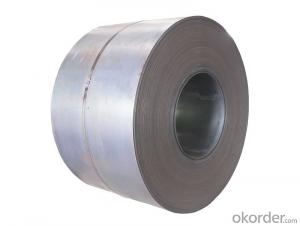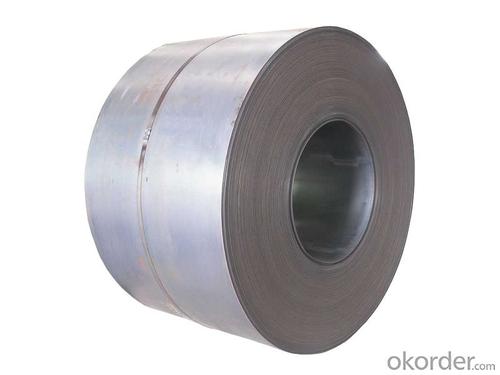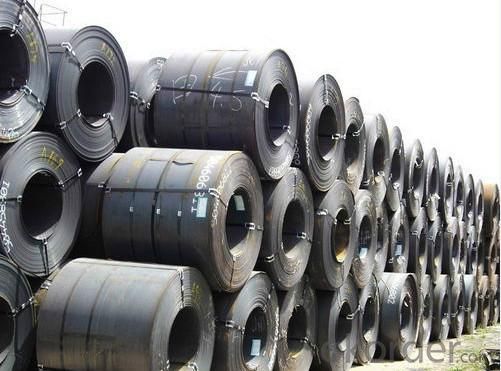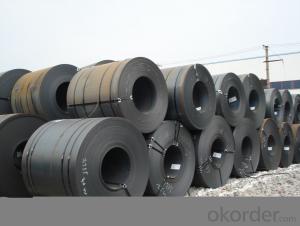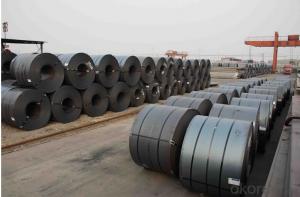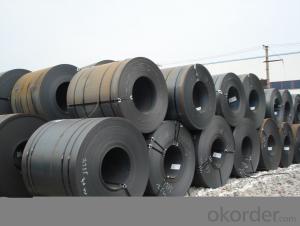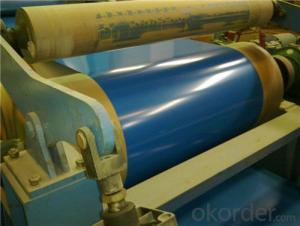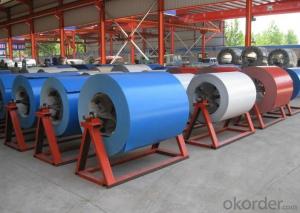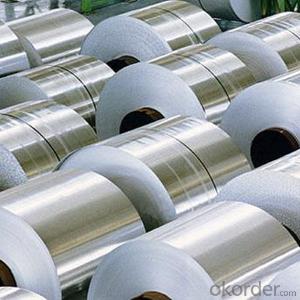Hot Rolled Steel Coils /Sheets
- Loading Port:
- China Main Port
- Payment Terms:
- TT OR LC
- Min Order Qty:
- -
- Supply Capability:
- -
OKorder Service Pledge
OKorder Financial Service
You Might Also Like
Product: | Hot Rolled Steel Coils/Sheets |
Material: | Q195,Q235,A36,SS400,S235JR,Q345,ST37-2, CCSB etc |
Standard : | JIS G3002 GB/T251B |
Technique: | hot rolled |
Thickness | 1.2mm to 200mm |
Tolerance of thickness: | :+/-0.03mm |
Width: | 750mm-2000mm |
Tolerance of width: | :+/-5.00mm (aiming to +/-2.00mm) |
Normal width: | 914mm, 1000mm, 1200mm, 1219mm, 1250mm,1500mm |
Length: | According to requirement |
Coil ID: | 508mm-610mm |
Coil Weight: | 10-25 Metric Tons |
Surface: | Black, Chromate, fingerprint resistant treatment, slight oiled or non-oiled, dry |
Port of Loading: | Tianjin/Shanghai port |
Packaging Details: | Standard export packing or according to the clients required |
Delivery Time | Within 30 days after received 30% deposit or workable L/C |
Payment Terms: | L/C,T/T |
|
|
- Q: What are the different types of steel coils available?
- There are several different types of steel coils available, each with its own specific properties and uses. 1. Hot Rolled Steel Coils: These coils are produced at high temperatures and are commonly used in applications that require a smooth and polished finish, such as automotive parts, construction materials, and machinery. 2. Cold Rolled Steel Coils: These coils are processed at lower temperatures to improve the surface finish and dimensional accuracy. They are widely used in industries such as automotive, appliances, and electronics, where a high level of precision is required. 3. Galvanized Steel Coils: These coils are coated with a layer of zinc to protect the underlying steel from corrosion. They are commonly used in construction materials, roofing, and automotive parts that are exposed to harsh environmental conditions. 4. Stainless Steel Coils: These coils are made from a combination of iron, chromium, and other elements to provide excellent corrosion resistance and high strength. They are widely used in applications that require hygiene, such as food processing equipment, medical instruments, and kitchen appliances. 5. Electrical Steel Coils: These coils are specifically designed for applications that require magnetic properties, such as transformers, electric motors, and generators. They have low core losses and high permeability to efficiently transfer electrical energy. 6. Pre-painted Steel Coils: These coils are coated with a layer of paint or other protective coatings to enhance their aesthetic appeal and provide additional protection against corrosion. They are commonly used in the construction industry for cladding, roofing, and siding. 7. Tinplate Steel Coils: These coils are coated with a thin layer of tin to prevent corrosion and provide a barrier against moisture and oxygen. They are widely used in the packaging industry for cans, containers, and other food or beverage packaging. These are just a few examples of the different types of steel coils available in the market. Each type has its own unique properties and applications, making them suitable for various industries and purposes.
- Q: I'm writing a story, and trying to find out how hot it needs to be for steel to turn into a gas.
- Steel is to broad. There are many types of steel with different melting/boiling points. Iron* has a boiling point of 5182 °F and a Heat of vaporization of 340 kJ·mol?1. iron is the main ingredient of steel, along with carbon and other various elements.
- Q: What are steel coils?
- Steel coils are long, flat sheets of steel that have been wound into a coil shape. They are used in various industries for manufacturing purposes, such as in the automotive, construction, and appliance industries. Steel coils are typically made from carbon steel and are commonly used for applications that require strength and durability.
- Q: I would like to know if steel is basically a very dense crystal, or if it is a different atomic structure
- Steel okorder /
- Q: Can steel coils be coated with copper?
- Yes, steel coils can be coated with copper. This process, known as copper coating or copper plating, involves applying a layer of copper onto the surface of the steel coil. This coating can provide various benefits such as enhanced corrosion resistance, improved conductivity, and aesthetic appeal.
- Q: i have recently gotten into DIY and am planning on making my own knife. My question is what kind of steel would be good to use for heat treating if i plan on using water and not oil in the process.
- Go to junkyard get old leaf spring, cut out knife, start sharpening. Why waste time heat treating steel when the spring steel as already be done.
- Q: I have samurai sword that is a replica of the kill bill sword. It says on the blade stainless steel, what can i use to shine and protect blade. It had and still does a wax.like coating on the blade sine i received it. Thx for ur help
- Normally okorder
- Q: I have a job where I'm required to wear ANSI certified steel toed boots or shoes(so long as its ANSI). Thing is, I'm a vegan. I do NOT want to buy leather, and I will go to great lengths to buy a non leather shoe/boot I can wear on the job! I AM currently borrowing my dad's leather ANSI boots, but would very much love to be able to rock a pair of cruelty free boots/shoes on the job!It does not have to be certified vegan just all man-made materials and no leather/sued and other such stuff where animals have to die. It would make me no better than the massive slaughterhouse industries and such. Valueing money of ver live/morals. I don't want one of the first things I need to do in my manufacturing job is compromising my morals. :3So if you know of an ANSI vegan friendly boot brand PLEASE TELL ME! *gets on knees begging*Money isn't really an option for me, I'll just continue borrowing my dad's boots till I save up enough!Thanks in advance! :D
- Sears okorder /
- Q: 1943 steel pennies
- if you collect coins, you need to learn that they must never be cleaned. cleaning, while it might make them look pretty, ruins their value as a collectable. ask your coin dealer.
- Q: Is it possible to make a homemade blacksmith forge from a washing machine drum made of stainless steel?
- The okorder /
Send your message to us
Hot Rolled Steel Coils /Sheets
- Loading Port:
- China Main Port
- Payment Terms:
- TT OR LC
- Min Order Qty:
- -
- Supply Capability:
- -
OKorder Service Pledge
OKorder Financial Service
Similar products
Hot products
Hot Searches
Related keywords
